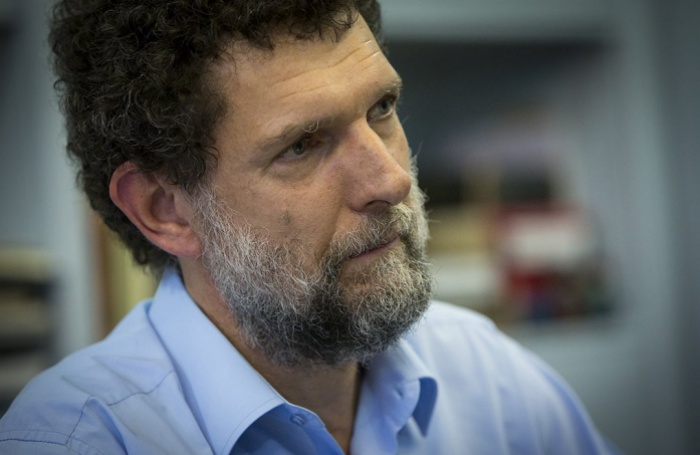Senior members of the ruling Justice and Development Party (AKP) have expressed outrage at a joint statement issued by the Ankara embassies of 10 countries that called on Turkey to immediately release from prison prominent businessman and rights activist Osman Kavala, citing the rulings of the European Court of Human Rights.
The written statement by the embassies of Canada, France, Finland, Denmark, Germany, the Netherlands, New Zealand, Norway, Sweden and the US on Monday stated that continued delays in the trial of Kavala, who has been behind bars for four years on what many say are politically motivated charges, “cast a shadow over respect for democracy, the rule of law and transparency in the Turkish judiciary system.”
They added that they believed “a just and speedy resolution” to his case must be “in line with Turkey’s international obligations and domestic laws.”
The ambassadors of the 10 countries were summoned to the Ministry of Foreign Affairs following their statement and are expected to be at the ministry on Wednesday morning, the state-run Anadolu news agency reported.
Senior figures from the ruling AKP harshly condemned the diplomats for their call regarding Kavala’s ongoing imprisonment, accusing them of exceeding their boundaries and attempting to meddle in Turkey’s internal affairs.
“Diplomats who give advice and make suggestions about an ongoing trial should know that what they are doing is a constitutional crime. The Republic of Turkey isn’t a state where they can disregard the constitutional order and the independence of the judiciary. It’s everyone’s duty to know their limits,” AKP General Secretary Fatih Şahin said in a tweet.
AKP spokesperson Ömer Çelik indicated that the statement of diplomats serving in Turkey was aimed at influencing the Turkish judiciary and was therefore unacceptable.
By releasing such a statement, the ambassadors “went beyond their boundaries and demanded the intervention of politics in the judiciary,” Vice President Fuat Oktay said.
“Mind your own business,” Parliament Speaker Mustafa Şentop told the diplomats, arguing that it wasn’t their right and a presumptuous move to comment on what a court should decide on during an ongoing trial, when even asking questions and holding talks in parliament regarding such a case was prohibited by the constitution.
“The Republic of Turkey is a democratic state of law. … Your advice and suggestion cast a shadow over your understanding of law and democracy,” Interior Minister Süleyman Soylu tweeted on Monday, addressing the ambassadors.
Justice Minister Abdülhamit Gül also emphasized that diplomats were obliged to respect the laws of the state in which they serve.
“According to our constitution, it isn’t the duty of any ambassador to make recommendations and suggestions to our courts. It’s this presumption that casts a shadow over the rule of law,” he added.
Kavala, who was initially accused of organizing the Gezi Park protests that were sparked in opposition to government plans to redevelop Gezi Park in İstanbul’s Taksim neighborhood in May 2013 and quickly turned into nationwide anti-government protests, was later accused of involvement in a 2016 coup attempt.
On July 28 his case was merged with the trial of the Çarşı group, the left-leaning supporters of Turkish football club Beşiktaş who were at the forefront of the Gezi protests and are charged with attempting to overthrow the government.
An İstanbul court ruled to keep him in jail during his latest hearing on October 8.
The European Court of Human Rights ruled in December 2019 that the prolonged pretrial detention of Kavala was in violation of the European Convention on Human Rights and ordered his immediate release. But Turkey hasn’t abided by the ruling despite repeated calls by the Committee of Ministers of the Council of Europe.



